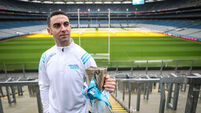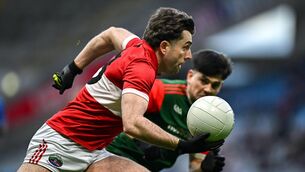Gentleman Jim: Dingle’s unsung hero
In it, Jim recalls an unusual request made by an elderly local who arrived in the surgery one day with two forms for him to sign: one was an eyesight cert for a driving licence renewal, the other was for the Blind Pension! Dr Jim knocked great craic out of that but the story itself tells you a lot the position he held in the community.
That respect and love was often reciprocated as I think people saw in Jim, one who moved into the area who valued and cherished their ways, who worked creatively within their community by bringing in new skills and ideas, who strengthened the community’s commitment to their own culture and who made them feel better about themselves. Crucially, perhaps, for people who like their football heroes and public figures to be low key and understated — Dr Jim had no “éirí in airde” about him.














